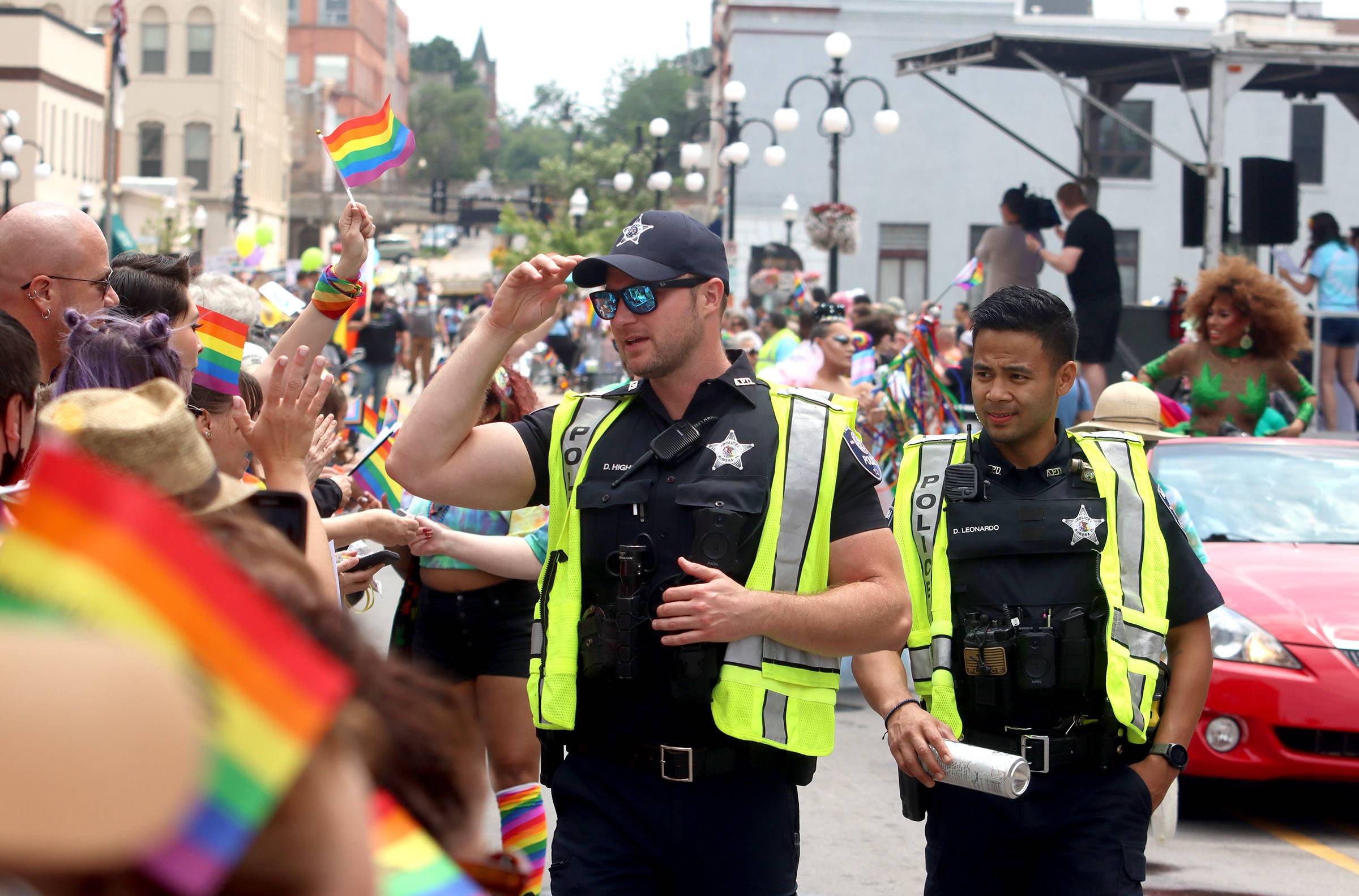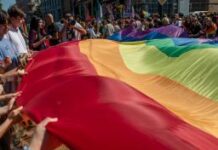
The organizers of the Aurora Pride Parade are suing the city, saying it violated the group’s First Amendment rights when it first canceled the 2022 parade, then charged organizers twice as much as they expected for police security.
The federal lawsuit filed Tuesday says the city illegally based its decisions on the content of Aurora Pride’s message about not wanting uniformed police officers marching in the parade.
The city “wreaked havoc” on the parade when it allowed a “heckler’s veto” to cancel the parade, as police officers who had initially signed up for overtime duty withdrew due to the controversy, the suit states.
None of this was Aurora Pride’s fault, Aurora Pride says.
“Defendants violated Aurora Pride’s First Amendment right to freedom of speech and assembly by revoking its permit for reasons that Aurora Pride did not cause and was powerless to remedy, then billing Aurora Pride thousands of dollars to ‘fix’ a problem of defendants’ own creation,” the suit states.
Aurora Pride has asked a federal judge to block the city from enforcing its special-events ordinance, which governs parades.
It also seeks unspecified damages from the city. Aurora Pride says that when it first applied for its 2022 permit, city officials estimated the group would have to pay about $21,606 for police. After the parade, it was billed $40,427 because the city tripled the pay rate to get officers to sign up just days before the event.
Clayton Muhammad, the city’s chief communications officer, said the city has no comment about the lawsuit because it does not comment on pending litigation.
Last year’s parade
The controversy over last year’s parade started when lesbian, bisexual, gay, transgender and queer officers from the Elgin and Aurora police departments asked if they could participate and if there was any anti-police sentiment.
Aurora Pride said the groups could participate if they did not wear police uniforms or use police vehicles. It said members of the LGBTQ community had complained about the presence of uniformed police in previous parades and that some are sensitive about the matter because of personal and historical oppression by police.
When the officers disagreed with the decision, parade organizers suggested that they wear “soft” uniforms, such as polo shirts or T-shirts, with their department’s name or insignia.
Aurora Mayor Richard Irvin then denounced the position and said he would not march and there would not be a city float in the parade.
Some police officers who had previously signed up to work at the event withdrew. City officials said that left the event 22 officers short of the 56 deemed necessary and revoked the parade permit. The city said it was not allowed, per a union contract, to force officers to work overtime at private special events.
A police officer also testified, at a hearing on the permit revocation, that the department was worried the parade would attract trouble from pro-choice and anti-abortion protesters because the controversial Roe V. Wade Supreme Court decision on abortion was about to be overturned. There had been such protests at previous parades, he said.
In its lawsuit, Aurora Pride says the special-events ordinance is unconstitutional because “it lacks clear, definite and content-neutral standards for decisions” city officials make about events, including how many police officers are required.








